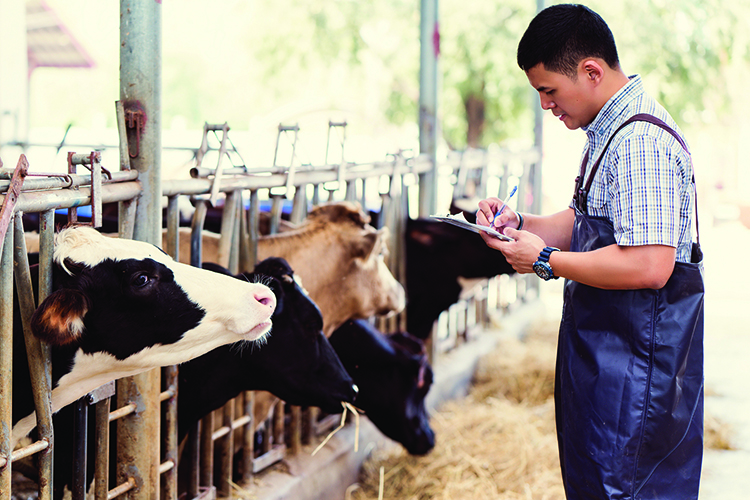How did Rachel Visser become the 71st Princess Kay of the Milky Way at the Minnesota State Fair? Curious? Keep reading.
Summary: Rachel Visser, a sophomore at the University of Minnesota, was crowned the 71st Princess Kay of the Milky Way at the Minnesota State Fairgrounds. Majoring in agricultural and food business management and agricultural communications and marketing, she will serve as the goodwill ambassador for nearly 1,800 Minnesota dairy farm families. Despite not growing up on a dairy farm, her passion for the industry grew while working on Chad and Stacy Bohn’s farm. Alongside Visser, Katie Ketchum and Grace Woitalla were named runners-up, and Mackenzie Moline was honored as Miss Congeniality. Throughout her reign, Rachel aims to connect consumers with the dairy farming community. Her first task includes sculpting her likeness in a 90-pound block of butter at the State Fair.
- A University of Minnesota sophomore, Rachel Visser was named the 71st Princess Kay of the Milky Way.
- Visser majors in agricultural and food business management, as well as agricultural communications and marketing.
- Her role includes serving as the goodwill ambassador for nearly 1,800 Minnesota dairy farm families.
- Despite not being from a dairy farm, she developed a passion for the industry working on the Bohn family’s farm.
- Katie Ketchum and Grace Woitalla were selected as runners-up, with Mackenzie Moline receiving the Miss Congeniality title.
- Rachel’s first official duty is to sit for a butter sculpture at the Minnesota State Fair.

Have you ever considered what it takes to be proclaimed Princess Kay of the Milky Way? Meet Rachel Visser, the new face of Minnesota’s dairy industry. This distinguished title in dairy farming represents devotion, enthusiasm, and commitment to agriculture.
“It almost doesn’t feel real,” Visser remarked minutes after being crowned, her delight and astonishment palpable. “I’m super excited for the next 12 days at the State Fair, and the next year ahead will be super exciting.”
Rachel, a student at the University of Minnesota specializing in agriculture and food business management, took up the mantle at an evening ceremony at the Minnesota State Fair. This event is an unofficial kickoff to the celebrated Great Minnesota Get-Together, the Minnesota State Fair. What’s the significance? She becomes the goodwill ambassador for approximately 1,800 Minnesota dairy farm families.
Meet Rachel Visser: From Classrooms to Cow Barns, A True Dairy Industry Enthusiast
Meet Rachel Visser, an exceptional young lady who has successfully combined her academic interests with her enthusiasm for the dairy sector. Rachel is a sophomore at the University of Minnesota, where she studies agriculture and food business management, as well as agricultural communications and marketing.
Despite not having grown up on a dairy farm, Rachel’s enthusiasm for the sector was palpable when she presented her first Jersey calf 11 years ago. She instantly fell in love with the hardworking dairy farmers and their commitment to producing nutritious dairy products. She now spends her summers working on Chad and Stacy Bohn’s farm near Litchfield, sharpening her talents and increasing her relationship with the dairy industry.
Her joy was evident when she was named Princess Kay of the Milky Way at a remarkable event at the Minnesota State Fairgrounds. “It almost doesn’t feel real,” Rachel remarked minutes after being crowned, deeply overwhelmed by the support of her family and friends. The grandeur of the honor and the chances ahead filled her with awe and appreciation, and she was excited to share the tales of dairy farmers throughout Minnesota.
From Jersey Calves to Crowns: Rachel Visser’s Inspiring Path to Princess Kay
Rachel Visser’s road to becoming Princess Kay of the Milky Way started when she showed a Jersey calf 11 years ago. It was a watershed occasion that inspired her interest in the dairy business. Rachel’s initial interest blossomed into a full-fledged passion, inspired by her love for the hardworking dairy farmers she encountered.
Rachel spends her summers working on a dairy farm with Chad and Stacy Bohn of Litchfield. She learns by milking 27 cows and contributing to developing a high-quality display herd. This hands-on experience has increased her knowledge and enthusiasm for dairy farming.
Rachel’s passion extends beyond farmwork. She is preparing to successfully advocate for dairy farmers by studying agriculture and food business management, as well as agricultural communications and marketing, at the University of Minnesota. Her new job as Princess Kay is more than just a title; it’s a platform for sharing the tales of Minnesota’s dairy farm families with the general public.
“I fell in love with the hardworking dairy farmers, and I wanted to learn everything they did to produce healthy dairy products,” Rachel told me. Her path from raising her first Jersey calf to becoming a goodwill ambassador for the industry demonstrates her enthusiasm and devotion.
Stepping into the Spotlight: The Fierce Yet Friendly Competition for Princess Kay
Imagine walking into the limelight among nine outstanding young ladies competing for the same coveted championship. Princess Kay of the Milky Way faces stiff competition, but there is also a sense of friendship. Each contender is from a different section of Minnesota and has distinct tales and experiences from their dairy farm villages.
This year, Katie Ketchum of Altura, representing Winona County, and Grace Woitalla of Avon, representing Stearns County, stood out and were named the noteworthy runners-up. Their accomplishments did not end there; scholarships were offered to Ketchum and Woitalla for their dedication and services to the dairy business.
The essence of the event is more than simply earning a crown; it is about celebrating shared interests. Mackenzie Moline of Saint Peter, representing Nicollet County, won the title of Miss Congeniality, which recognizes her kindness and cooperative nature. These awards show that the competition values individual achievement and the dairy community’s supporting network.
Miranda Schroeder from Caledonia represented Houston County; McKenna Wright from Hutchinson represented McLeod County; Selena Corona from Saint Joseph represented Stearns County; Katelyn Welgraven from Ruthton represented Pipestone County; and Afton Nelson from Owatonna represented Steele County. These young ladies contributed their talents and tales, enriching an already dynamic evening.
As you can see, the competition is more than just a pageant; it is a celebration of Minnesota dairy farmers’ hard work, devotion, and community spirit. These young ladies will continue the tradition of excellence and dedication for future generations.
Rachel Visser: Bridging Farmers and Consumers in Her New Role as Princess Kay of the Milky Way
Rachel Visser, the recently minted Princess Kay of the Milky Way, goes on a unique path of advocacy and celebration. Her function is not just ceremonial; it has considerable obligations. Rachel will serve as the official goodwill ambassador for approximately 1,800 dairy farm families in Minnesota. As such, she serves as the dairy industry’s face and voice, bridging the gap between farmers and customers.
Rachel will make countless public appearances throughout her one-year reign. She will attend neighborhood events, school visits, and state fairs to provide information about dairy farming and the value of dairy products. Her primary objective is to educate and involve the public, instilling more tremendous respect for the hardworking farmers who provide milk for our meals.
Her first formal task involves having her picture molded in butter, one of her profession’s most memorable traditions. This ceremony occurs in a spinning chiller in the State Fair dairy building. Renowned sculptor Gerry Kulzer will create Rachel’s picture out of a 90-pound block of butter, providing a lasting emblem of her reign.
This hands-on engagement highlights the importance of the dairy business. It allows Rachel to share her enthusiasm and experiences with a larger audience. By personally interacting with people and highlighting Minnesota dairy farmers’ devotion and skill, she will help demystify the dairy farming process.
Inside the Heart of Dairy Farming: A Community of Passion and Dedication
“I showed my first Jersey calf 11 years ago and fell in love with the hardworking dairy farmers,” Rachel smiled. “It almost seems unreal. I’m thrilled to convey the dairy story—not just mine, but the stories of farmers across Minnesota.”
Chad Bohn, with whom Rachel works during the summer, shared his admiration: “Rachel’s dedication to learning and passion for dairy farming is inspiring.” We knew she could influence people.
Katie Ketchum, one of the runners-up, said of the tournament, “The camaraderie and support among all the contestants is truly heartwarming.” Rachel will be an excellent spokesperson for our community.”
Gerry Kulzer, the sculptor who will carve Rachel’s face into butter, called the distinction an “extraordinary pleasure.” Her zeal is infectious, and I’m excited to watch how she represents the dairy community.
Rachel’s parents, who watched proudly from the crowd, expressed their delight, saying, “We are over the moon.” “Seeing Rachel grow and take on such a prestigious role is the proudest moment for our family.”
The Bottom Line
Princess Kay of the Milky Way is more than a crown; it signifies devotion, passion, and a link between farms and families. Rachel Visser sees it as a chance to support the values and hard work of Minnesota’s dairy farmers while also sharing their experiences with the rest of the globe. This function is critical in celebrating the industry’s history and educating customers about the hands that feed them. As Rachel takes on this crucial responsibility, consider how we may better assist and understand the hardworking persons who provide our food. Rachel’s story encourages us all to respect and connect with the agricultural roots in our communities.















